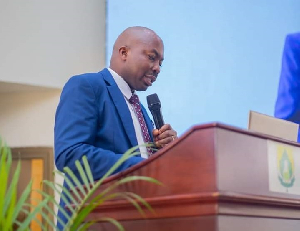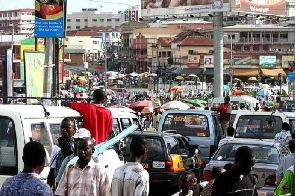Diverse Reactions and Protests Over Ghana's New GH¢1 Fuel Levy

The Ghanaian government, under President John Mahama’s administration, has implemented a controversial GH¢1 fuel levy following the passage of the Energy Sector Levy (Amendment) Bill, 2025. The bill was approved in Parliament on Tuesday, June 3, 2025, after being introduced under a certificate of urgency by Finance Minister Dr. Cassiel Ato Forson. This new levy imposes a GH¢1 charge on every litre of petroleum products sold and is projected to generate approximately GH¢5.7 billion annually. According to the Ministry of Finance and Dr. Ato Forson, this measure is crucial for tackling Ghana’s substantial energy sector debt, which stood at $3.1 billion as of March 2025. The government states that at least $3.7 billion is required to fully settle these obligations, with an additional $1.2 billion needed this year for fuel to power thermal plants. The levy aims to stabilize the energy sector and help end the persistent power outages, commonly referred to as "dumsor." President John Dramani Mahama has described the decision as a "difficult but necessary" step for economic stabilization.
The introduction of the levy has drawn varied responses from the public. Ghanaian musician Captain Planet, a member of the former hiplife group 4×4, publicly declared his support for the GH¢1 fuel levy on June 4, 2025. Despite previously identifying as a supporter of the New Patriotic Party (NPP), Captain Planet stated his willingness to pay the levy, viewing it as a contribution towards national development and ensuring stable electricity. He urged Ghanaians to "put politics aside, let’s build the nation" and recalled paying numerous taxes under the previous NPP government, questioning the resistance to a GH¢1 levy if it leads to improvements. He reiterated his commitment, saying, "I promise to pay the one cedi fuel levy so I can enjoy my stable electricity. We’re building a nation, not a political party. All hands on deck."
Conversely, the levy has provoked significant anger and frustration among transport operators. On Thursday, June 5, 2025, commercial drivers and bus conductors (mates) at Anloga Junction in Kumasi were seen in a viral video lamenting the impact of the GH¢1 increment on the newly-amended Energy Sector Levies Act (ESLA), popularly called the D-levy. They expressed strong disapproval and threatened to increase transport fares if the government does not reverse the levy, arguing it would exacerbate the cost of living for both operators and passengers. Their frustration was compounded by a recent reduction in fares, which they feel does not align with current fuel prices and operational costs. One driver emphatically stated, "We are not happy with the new levy, they should scrap it."
This sentiment is shared by broader transport unions. The Commercial Transport Operators, including the Ghana Private Road Transport Union (GPRTU), formally called on the government to immediately reverse the GH¢1 Energy Sector Levy. During a press conference on Thursday, June 5, 2025, GPRTU Public Relations Officer Abass Ibrahim Moro described the levy as a significant burden that "threatens the survival of the transport sector." He pointed out that the new charge comes shortly after a nationwide reduction in transport fares, thereby imposing a severe financial strain on operators already dealing with high operational costs. The unions are urging the government to engage with them for a sustainable solution to the energy sector's challenges and have issued an ultimatum: if the levy is not reversed, drivers will embark on an industrial action, parking their vehicles on June 10, 2025.
The parliamentary process for the bill was also contentious. The Minority Caucus in Parliament staged a walkout during the proceedings, accusing the government of worsening the economic burden on already struggling Ghanaians. Despite their opposition, the bill was passed by the Majority, igniting considerable debate on social media and across public discourse.








